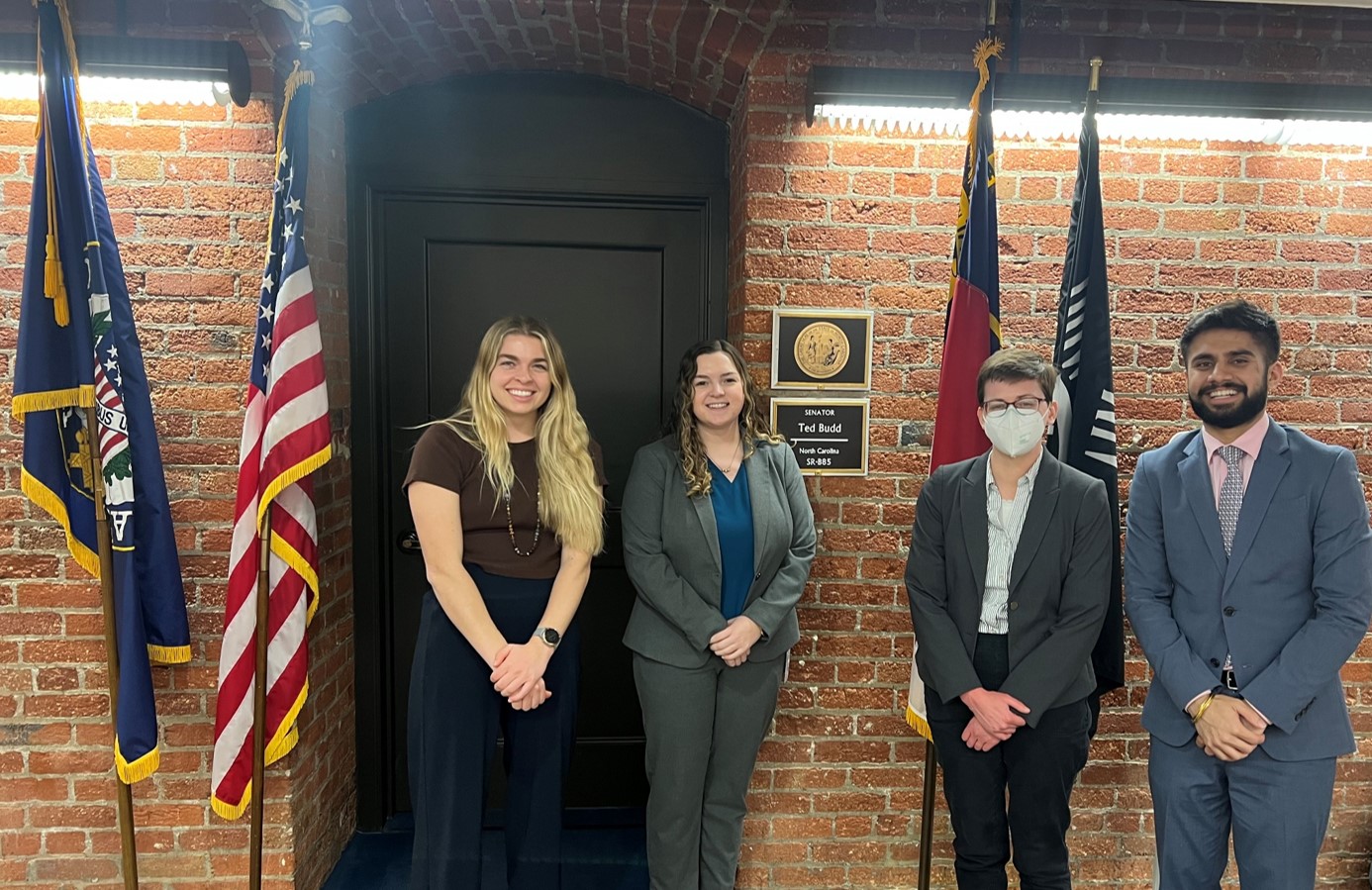AAAS CASE Workshop report by Meredith Schmehl
Science and society are deeply connected, with research findings informing medicine, public health, education, and business. And as scientists, we cannot conduct our research without funding from the federal government. At the center of this connection is science policy, an interdisciplinary field that helps make the benefits of research accessible, works to recruit and retain diverse STEM trainees, and ensures science is used in policy decisions.
Because the federal budget is renegotiated each year, there is a constant need for scientists to engage with their legislators about the importance of supporting basic, applied, and clinical research. In March 2023, I was fortunate to be supported by OBGE to attend the Catalyzing Advocacy in Science and Engineering (CASE) meeting organized by the American Association for the Advancement of Science, where I had the opportunity to attend Congressional hearings and meet with the offices of North Carolina legislators to share the importance of funding for basic science research.
Here are my major pieces of advice based on my experience meeting with members of Congress and their staff:
1. Know the member’s values and goals
Members of Congress are driven by the needs of their constituents and the issues in their communities. This means a successful meeting must connect to these needs. To prepare for my meetings, I used resources such as those covering the National Institutes of Health and National Science Foundation to understand the value and impact of research funding on local issues in North Carolina. I also browsed the website of each Senator and Representative to find which committees and caucuses they participate in, whether they hold leadership positions in relevant committees, and what news stories or statements have recently been released from their office. These resources provided a greater understanding of what drives each legislator’s decisions and which issues are most important to them.
2. Tailor your message
Once you know the issues that are most important to the legislator, you can tailor your message to suit their unique needs and goals. Because most legislators and staffers do not have a scientific background, it can be useful to connect your research to a more concrete example or issue in the constituency.
My go-to example is from the education setting. In the lab, I study how the brain uses visual cues to process sound. But while explaining to a legislator what I study and why it matters, I linked that work to students with learning difficulties, who might benefit from research on how the brain processes complex sensory information. By sharing this example and connecting it to something important to the legislator, I was able to use my research to demonstrate the power of research funding.
3. Share your story
Sharing your research is valuable, but what can make an even larger impact is sharing your personal story. Legislators appreciate specific examples of how their decisions and political priorities have benefitted their constituents. In my meetings, I shared how specific NIH research, training, and fellowship grants have supported my research and how I’ve benefitted from NIH-funded professional development programs as an undergraduate and graduate student. These stories helped form a more personal connection and highlighted the impact of scientific funding.
If you’d like to learn more about how to make your voice heard through science policy, consider applying for the next iteration of CASE, joining Duke Science Policy, Advocacy, and Ethics (SPAcE), or making use of the many resources mentioned at the meeting, including the National Science Policy Network (NSPN), Engineers & Scientists Acting Locally (ESAL), and the Engaging Science and Engineers in Policy (ESEP) Coalition.
